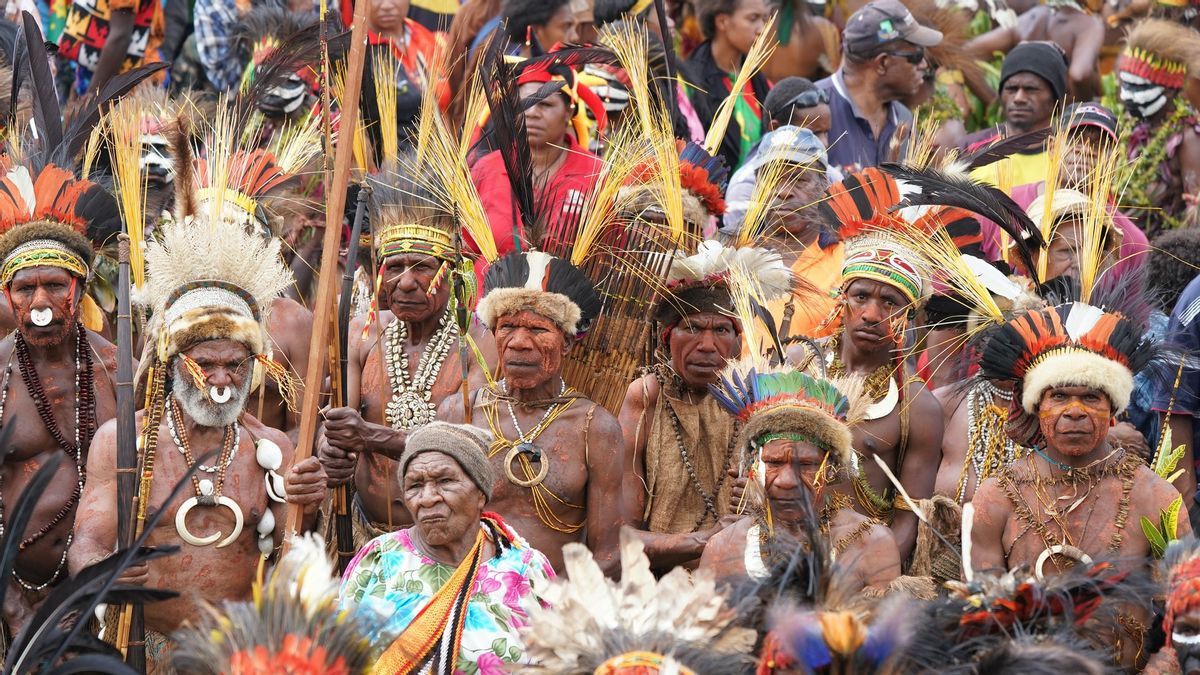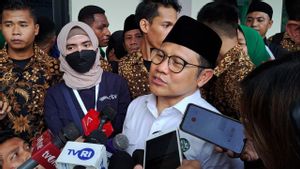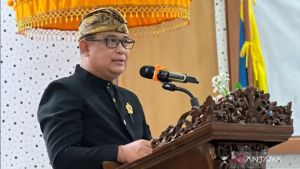YOGYAKARTA - The right of customary is being discussed by the Indonesian people in the midst of taking action against the corruption case, Lukas Enembe. The exception of discussing customary rights began when Aloysius Renwarin, Lukas' lawyer, asked that his client's case be resolved by customary law.
Lukas' attorney said the customary legal decision on his client's case was desired by the Papuan people. He said Lukas was the head of the tribal tribe which had been ratified by the Papuan Customary Council.
The Lukas family and the Papuan people agreed that the Lukas Enembe corruption case would be resolved with customary rights or customary law. They want the examination to be carried out openly in the field and witnessed by the Papuan people.
However, the KPK said that the case of Lukas Enembe was not included in the customary rights and could not be handled under customary law. What is customary rights and how to implement them?
What Is Ulayat Right?
Ulayat hak sudah ada dalam masyarakat adat di berbagai wilayah di Indonesia jauh sebelum kemerdekaan. Hak ulayat merupakan hak kewenangan tertinggi dalam sebuah masyarakat adat atas tanah milik bersama warganya.
Ulayat's rights are a series of people's powers and obligations in a customary law for a certain region which includes the customary, as a lebensraum or living space for its citizens to take advantage of natural resources including land within its territory.
The customary rights consist of subjects and objects. The subject of customary rights is that all members of the customary law community concerned. While the object is all land contained in the customary law community concerned. Land in the customary area may also be utilized by people from outside the indigenous community, but with the permission of the local customary authorities.
Every indigenous society in Indonesia has its own customary law or customary rights. However, each region has different legal names, not all of them use the term ulayat.
For example, in Bali using the term Prabumia', in Java Wewengkon, in Ambon Hak Pertuan, Lombok Tanah Paer, Kalimantan Panyampeto, Minangkabau Ulayat, and others.
Ulayat Rights In The State Law
The recognition of customary rights is regulated in Article 3 of the Agrarian Basic Law (UUPA). The right of customary is recognized in national land law.
The UUPA also regulates restrictions related to the existence of customary rights for indigenous peoples. The existence of customary law is recognized as long as in reality it still exists, in accordance with national and state interests, and should not conflict with higher laws and regulations.
Authority Of Ulayat Rights
Legal Power Of Ulayat Rights
Ulayat hak memiliki kekuatan hukum ke dalam dan keluar. Berikut penjelasan dari kedua kekuatan hukum hak ulayat tersebut.
The Legal Power Of Ulayat Rights Is Deep
Legal forces mean that indigenous law communities in certain places are bound by the rules of traditional leaders. Indigenous people use customary land for mutual welfare. Citizens can use land for personal gain with the permission of the leader. Usually it is required to pay in certain amounts.
Legal Power Of Ulayat Rights Out
The customary law force outside is carried out and maintained by the leaders of indigenous peoples. People from outside the customary law area are not allowed to enter the space or neighborhood of the land concerned without permission from the traditional leader.
Foreign communities may enter with the requirement to pay the 'adult filler' fee. Foreign people who enter without permission are among the violations that will be subject to criminal acts. Sanctions given are in accordance with applicable customary law.
SEE ALSO:
That is the explanation of customary rights in indigenous peoples in Indonesia. Every indigenous person has customary law with their respective names.
Stay up to date with the latest domestic and other overseas news on VOI. You present the latest and most updated nationally and internationally.
The English, Chinese, Japanese, Arabic, and French versions are automatically generated by the AI. So there may still be inaccuracies in translating, please always see Indonesian as our main language. (system supported by DigitalSiber.id)














